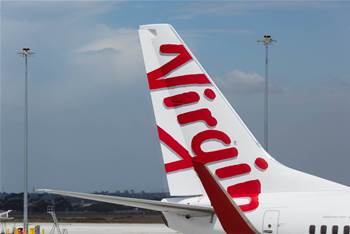Virgin Australia is worried a crackdown on permissible data use by loyalty schemes could grind some of its personalisation efforts to a halt.
The airline, acting on behalf of Velocity Frequent Flyer, defended its compliance with current privacy laws in a submission [pdf] to the Australian Competition and Consumer Commission’s (ACCC) crackdown on loyalty data practices.
It accused the ACCC of trying to hold it to a higher standard than the law currently requires.
Virgin said that customers expected seamless, digital and personalised interactions, and that to “remain successful and competitive, Velocity needs to meet these expectations”.
“[This] requires collecting and using data to create these experiences,” the airline said.
“It is no longer an option for a loyalty program, or arguably any consumer-facing business, to refrain from collecting and using data to create a personalised and frictionless experience for its customers.”
Virgin argued that it was effectively regulated in its use of data by the same consumer expectations.
“Velocity knows that if it fails to meet members’ expectations, member trust will be eroded with real consequences for the relevance of Velocity’s business,” it said.
Still, the airline saw opportunities to improve its operations, announcing it would perform a “comprehensive review and update” of its Velocity privacy policy to trim its length and make it more readable - two concerns raised by the ACCC. This is expected to be done by March 2020.
“To better inform members about the ways in which Velocity collects member data, Velocity is also considering implementing a cookie policy,” it said.
Virgin said the privacy policy was not purposely unwieldy: “When describing fairly complex data flows and practices, there is an inherent tension between being open, transparent and non-exhaustive, whilst simultaneously being succinct and simplifying language.”
Virgin also said it would update - and then overhaul - what it calls its ‘Preference Centre’, where users can opt in and out of things like marketing communications. The overhaul - including its technology foundations - is scheduled for 2021.
Virgin was particularly concerned that consumers might get the wrong idea about Velocity’s data practices when reading the ACCC draft report and subsequent media coverage.
The airline was worried that it was being held by the ACCC to a higher standard than the law currently required.
“The [ACCC] draft report sets a clear expectation that a privacy policy should include very specific details about loyalty programs’ data practices,” Virgin Australia said.
“It suggests that privacy policies should cover all data, not just personal information and that the content to be included should be broader than what is required under Australian privacy laws.
“Velocity understands that this apparent difference in stance between the Office of the Australian Information Commissioner (OAIC) and the ACCC stems from the ACCC’s view as to how the data practices of businesses should be regulated, and privacy laws reformed, going forward.
“However, the criteria against which Velocity’s privacy policy and current practices for handling personal information are assessed in the draft report are not reflective of current privacy laws applicable to Velocity.”
That, it said could “provide consumers with an incorrect impression that loyalty programs, including Velocity, are acting contrary to the law.”
“Velocity considers that it complies with current regulatory requirements.”
Virgin said this extended to how it treated data sharing with third parties.
“Velocity provides its program partners with a range of analytics and insight reports on a de-identified basis,” it said.
“However, Velocity does not sell these reports, nor does it sell its member data, to third parties unrelated to the Velocity loyalty program.
“Data commercialisation activities undertaken by other loyalty program operators mentioned in the draft report would not be in line with our loyalty members’ current expectations.
“Velocity is concerned that the draft report creates the impression that all the loyalty programs discussed in the draft report engage in the described practices, which may concern its members.”



.png&h=140&w=231&c=1&s=0)





















